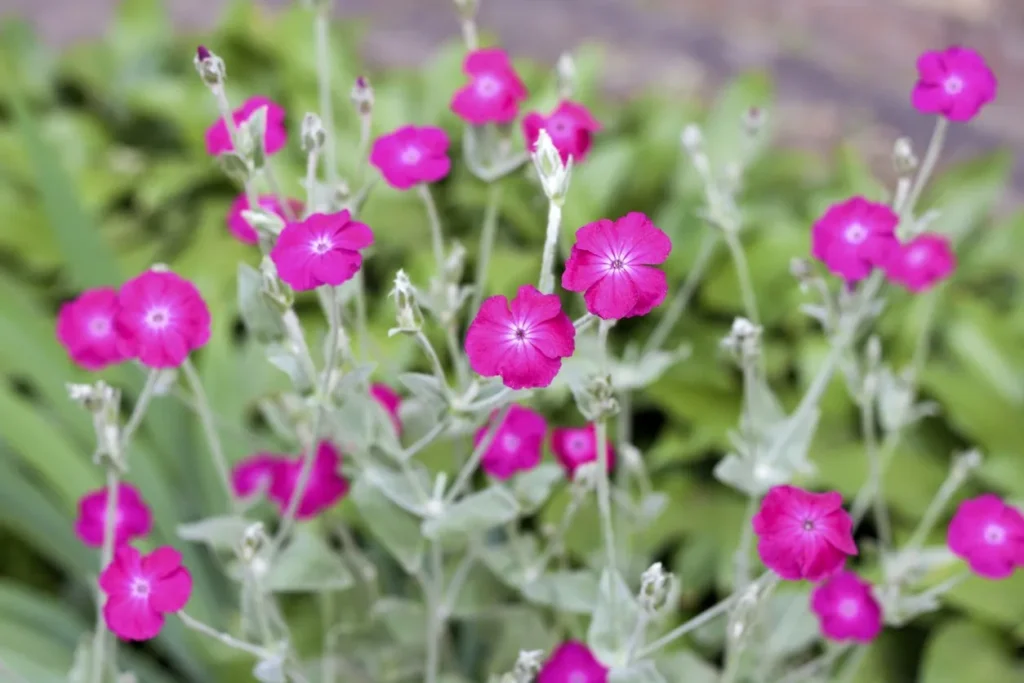Introduction
Rose campion (Silene coronaria), also known as dusty miller or mullein-pink, is a delightful flowering perennial known for its vibrant magenta flowers and silver-gray foliage. Originating from Southern Europe, this plant has found its way into gardens around the world for its easy care, resilience, and aesthetic appeal. In this comprehensive guide, we’ll explore everything you need to know about growing and caring for rose campion in your garden.
Choosing the Right Location
Sunlight Requirements
Rose campion thrives in full sun but can tolerate some light shade. When selecting a location in your garden, choose a spot that receives at least six to eight hours of sunlight daily. This ensures optimal growth and blooming.
Soil Conditions
This resilient plant prefers well-drained soil and can tolerate various soil types, including sandy, loamy, or rocky soils. However, it dislikes wet or waterlogged conditions, so ensure proper drainage to prevent root rot.
Climate Considerations
Rose campion is adaptable to various climates but prefers moderate temperatures. It can withstand some drought once established but benefits from occasional watering during prolonged dry spells.
Planting Rose Campion
Timing
Plant rose campion in the spring after the danger of frost has passed. This allows the plant to establish itself before the heat of summer.
Spacing
Provide adequate space between plants, approximately 12 to 18 inches apart, to allow for proper air circulation and prevent overcrowding.
Planting Depth
When planting, ensure the crown of the plant is at soil level. Avoid planting too deep, as this can lead to root suffocation.
Mulching
Apply a layer of mulch around the base of the plant to help retain moisture and suppress weeds. Organic mulches like compost or shredded bark work well.
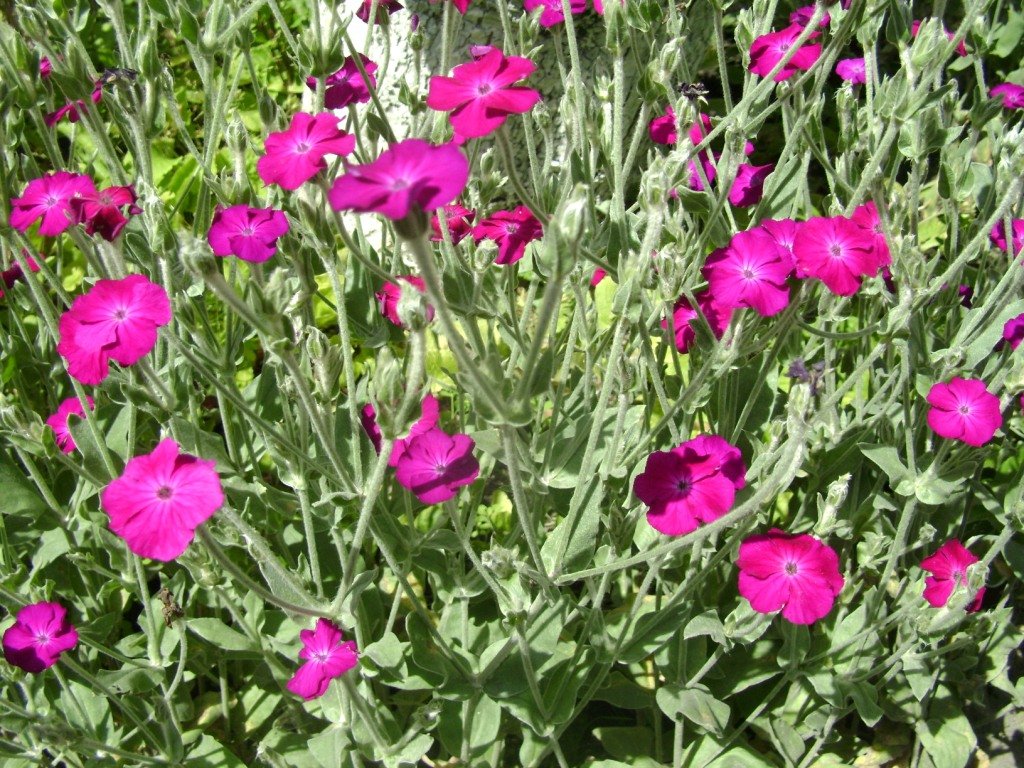
Watering and Fertilizing
Watering
While rose campion is drought-tolerant, it benefits from regular watering during dry periods, especially in the first growing season. Water deeply but infrequently to encourage deep root growth.
Fertilizing
Rose campion is not a heavy feeder, but you can apply a balanced fertilizer in the spring to promote healthy growth and blooming. Avoid over-fertilizing, as this can lead to excessive foliage at the expense of flowers.
Pruning and Deadheading
Deadheading
Remove spent flowers regularly to encourage continuous blooming throughout the growing season. This process, known as deadheading, redirects the plant’s energy into producing more flowers rather than setting seeds.
Pruning
In late fall or early spring, prune back any dead or leggy growth to maintain a compact, bushy shape. This rejuvenates the plant and promotes new growth.
Pest and Disease Control
Pest Resistance
Rose campion is relatively pest-resistant but may occasionally attract aphids or spider mites. These pests can be controlled with insecticidal soap or by spraying the plant with a strong stream of water.
Disease Prevention
This plant is also resistant to most diseases, but powdery mildew can occasionally be a problem, especially in humid climates. Ensure good air circulation around the plant and avoid overhead watering to prevent this fungal disease.
Propagation
Division
Rose campion can be propagated through division in early spring or fall. Carefully dig up the plant and separate the clumps, ensuring each division has both roots and shoots.
Seeds
Alternatively, collect seeds from mature plants and sow them directly in the garden in the fall or start them indoors in pots several weeks before the last frost date.
Companion Planting
Complementary Plants
Rose campion pairs well with a variety of other plants in the garden. Some excellent companions include lavender, catmint, salvia, and ornamental grasses. These plants not only complement the color and texture of rose campion but also attract beneficial pollinators.
Winter Care
Mulching
Apply a layer of mulch around the base of the plant in late fall to help insulate the roots and protect them from freezing temperatures.
Pruning
Avoid heavy pruning in the fall, as this can stimulate new growth that may be damaged by frost. Instead, wait until late winter or early spring to perform any necessary pruning.
Conclusion
It is a beautiful and resilient perennial that adds color and texture to any garden. With proper care and attention, you can enjoy its vibrant blooms and silver foliage year after year. From choosing the right location to propagation and winter care, these expert tips will help you grow and care for rose campion like a pro.
FAQs
Q: Is rose campion invasive?
A: No, rose campion is not considered invasive. While it can self-seed, it’s generally well-behaved in the garden and easy to control.
Q: Can rose campion tolerate poor soil conditions?
A: Yes, rose campion is quite tolerant of various soil types, including poor or rocky soils, as long as they are well-drained.
Q: How often should I water rose campion?
A: Water rose campion deeply but infrequently, allowing the soil to dry out between waterings. During dry spells, provide supplemental watering as needed.
With these tips in mind, you can successfully grow and care for rose campion in your garden, adding beauty and charm to your outdoor space.

